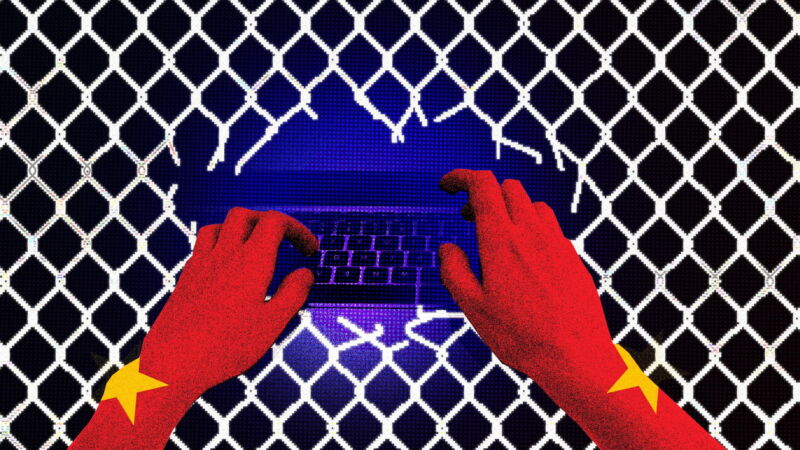
reader comments
56 with
For state-sponsored hacking operations, unpatched vulnerabilities are valuable ammunition. Intelligence agencies and militaries seize on hackable bugs when they’re revealed—exploiting them to carry out their campaigns of espionage or cyberwar—or spend millions to dig up new ones or to buy them in secret from the hacker gray market.
But for the past two years, China has added another approach to obtaining information about those vulnerabilities: a law that simply demands that any network technology business operating in the country hand it over. When tech companies learn of a hackable flaw in their products, they’re now required to tell a Chinese government agency—which, in some cases, then shares that information with China’s state-sponsored hackers, according to a new investigation. And some evidence suggests foreign firms with China-based operations are complying with the law, indirectly giving Chinese authorities hints about potential new ways to hack their own customers.

Today, the Atlantic Council released a report—whose findings the authors shared in advance with WIRED—that investigates the fallout of a Chinese law passed in 2021, designed to reform how companies and security researchers operating in China handle the discovery of security vulnerabilities in tech products. The law requires, among other things, that tech companies that discover or learn of a hackable flaw in their products must share information about it within two days with a Chinese agency known as the Ministry of Industry and Information Technology. The agency then adds the flaw to a database whose name translates from Mandarin as the Cybersecurity Threat and Vulnerability Information Sharing Platform but is often called by a simpler English name, the National Vulnerability Database.
many of the country’s most aggressive state-sponsored hacking operations in recent years, from spy campaigns to disruptive cyberattacks. And the vulnerability reports are also shared with Shanghai Jiaotong University and the security firm Beijing Topsec, both of which have a history of lending their cooperation to hacking campaigns carried out by China’s People Liberation Army.
“As soon as the regulations were announced, it was apparent that this was going to become an issue,” says Dakota Cary, a researcher at the Atlantic Council’s Global China Hub and one of the report’s authors. “Now we’ve been able to show that there is real overlap between the people operating this mandated reporting structure who have access to the vulnerabilities reported and the people carrying out offensive hacking operations.”
Given that patching vulnerabilities in technology products almost always takes far longer than the Chinese law’s two-day disclosure deadline, the Atlantic Council researchers argue that the law essentially puts any firm with China-based operations in an impossible position: Either leave China or give sensitive descriptions of vulnerabilities in the company’s products to a government that may well use that information for offensive hacking.
The researchers found, in fact, that some firms appear to be taking that second option. They point to a July 2022 document posted to the account of a research organization within the Ministry of Industry and Information Technologies on the Chinese-language social media service WeChat. The posted document lists members of the Vulnerability Information Sharing program that “passed examination,” possibly indicating that the listed companies complied with the law. The list, which happens to focus on industrial control system (or ICS) technology companies, includes six non-Chinese firms: Beckhoff, D-Link, KUKA, Omron, Phoenix Contact, and Schneider Electric.





